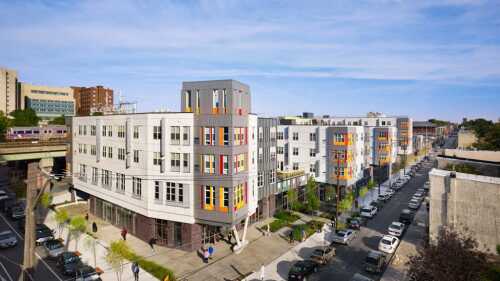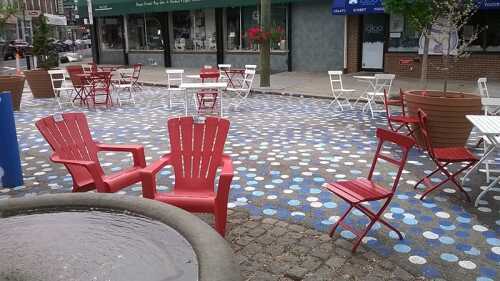Community and Neighborhood Development
Despite a regional economy that is faring better than that in much of the United States, many of New England’s major cities are struggling to provide enough affordable housing for their middle-income workforce.
A community development corporation and a developer committed to affordability and sustainability team up to provide rental housing with top-notch energy efficiency.
A decade ago, the 2200 block of Grays Ferry Avenue, the one-third of a triangular intersection girding an inoperative 19th-century fountain, was mostly prized for the handful of parking spaces it offered. Today, the street is closed to vehicular traffic and festooned with planters, painted asphalt, café tables, and a bike-sharing station.
The sharing economy is a hot topic; Zipcar, Uber, Airbnb, bike sharing, and shared workspaces are just a few of the brands and concepts in this space. With Oslo, Ditto Residential, a boutique residential developer in Washington, D.C., has reconceived and updated another time-tested sharing idea, house sharing—or in this case, apartment sharing, sometimes known as group living.
Harnessing the power of big data and the internet, new tech capabilities allow governments to fine-tune services—and allow residents more influence.
Over the past decade, innovation districts have been popping up around the globe, from Barcelona to Seattle. Although there is no “cookie cutter” formula to these technology-centric developments, they do have some elements in common, including a major anchor institution and a shared goal of bringing together a mix of uses within a dense urban setting.
Despite the record harsh winter of 2014–2015 that dumped 111 inches (281 cm) of snow on the city of Boston and the not-so-distant (2012) memory of the near-hit of Hurricane Sandy, instituting measures to safeguard against the effects of climate change and rising seas will not be an easy sell with the region’s utilities, property owners, government agencies, or general public.
Art and other expressions of culture can no longer be considered pricey or optional additions to major real estate projects, said panelists at the ULI Fall Meeting in San Francisco.
Six finalists have been selected for ULI’s Urban Open Space Award, the first year in which the competition was open to projects outside the United States and Canada. An international jury will select one winner, which will be announced at the Fall Meeting.
As urbanization spreads, natural disasters are increasingly happening in urban areas. That means “the unit is not the household anymore,” said Mario Flores, director of disaster response field operations at Habitat for Humanity, speaking at a panel at the National Building Museum in D.C. “We need to look at the entire neighborhood, by block, by city.”









